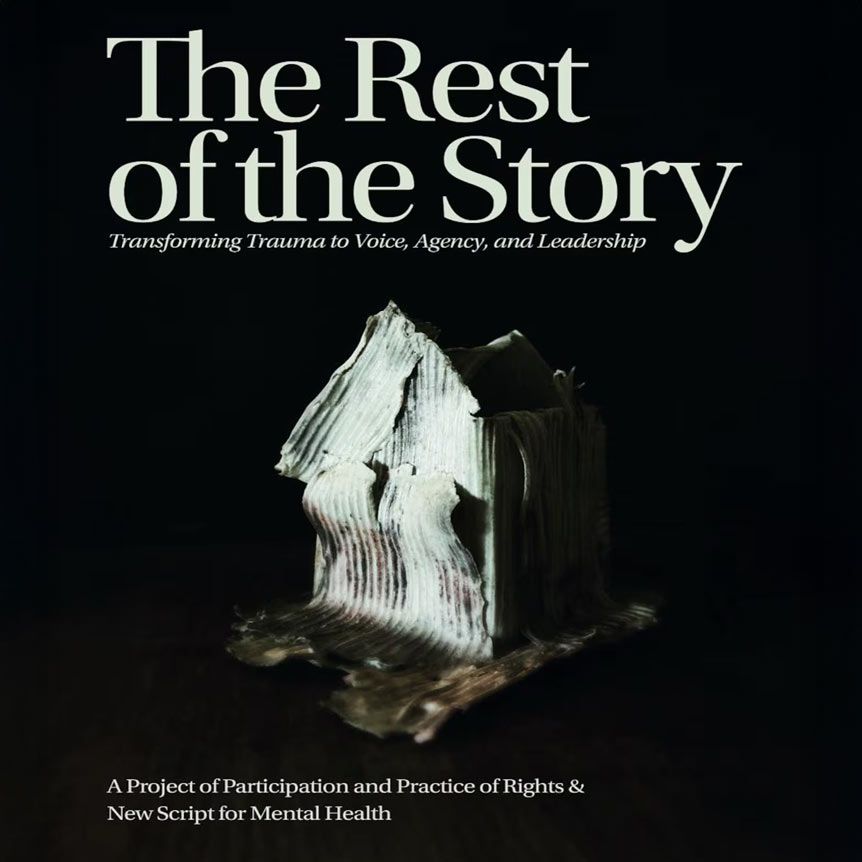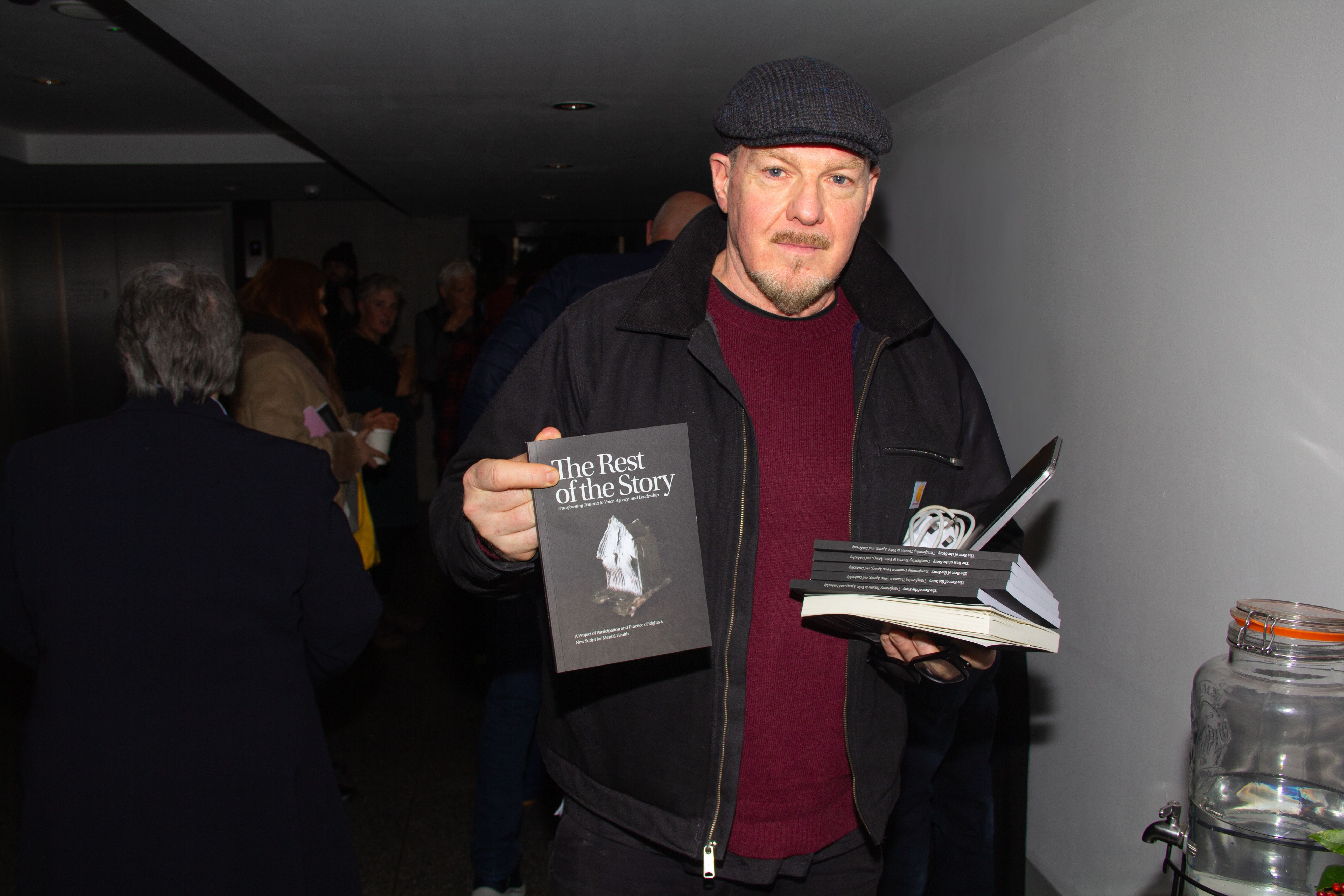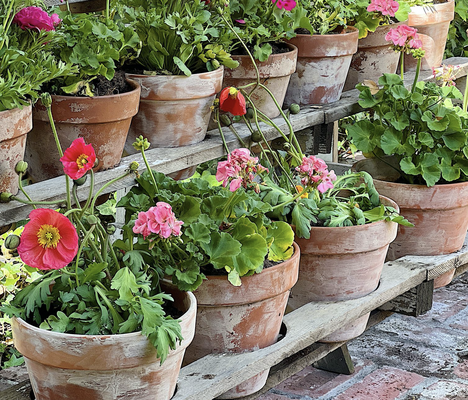I HAD the great fortune recently of joining a packed audience at the Belfast MAC for the launch of 'The Rest of the Story: Transforming Trauma to Voice'. This powerful new anthology is the culmination of a five-year collaboration between its editor, the inspirational Michael Patrick MacDonald, creator of the trauma-informed writing and storytelling initiative The Rest of the Story, and Aisling Award winners New Script for Mental Health, who campaign for a rights-based approach to mental health.
The atmosphere in the room was electric. There was a collective hush of expectation, followed by wave after wave of recognition as readers and contributors gave voice to experiences so often left unspoken.
The book brings together poetry, prose and memoir, drawing on personal experiences of trauma and mental health struggles alongside the healing power of community, solidarity and the arts. Across its pages, people reclaim language that has been used against them, reshaping it into testimony, insight and demand for change. As Michael Patrick told us on the night: “Story is about reclaiming our narratives in all their nuance and complexity.”
That line seemed to settle over the audience like a shared vow. We were reminded that the act of telling a story is not merely catharsis, it is a form of agency, an insistence on being seen and heard in full.
The anthology does not look away. It addresses intergenerational trauma, domestic and sexual violence, suicide, addiction, and the ongoing struggle to move beyond pain and loss. Yet it is never gratuitous. Instead, it invites the reader into careful, considered spaces where wounds are acknowledged and dignity is restored. The inclusion of artwork created by mental health activists broadens this invitation, offering visual counterpoints that carry their own lexicon of resistance and repair. Words and images speak to one another, and to us, building a chorus that feels both intimate and communal.

What struck me most was the clarity with which the contributors articulate not only what has harmed them, but also what helps. The book is threaded with moments of solidarity, small acts of kindness, mutual aid, and the simple, radical practice of listening. In this sense, it is as much a map forward as it is a record of where we have been. Michael Patrick reminded the audience that “owning our stories supports healing and growth, our stories connect us, build solidarity and nurtures communities rooted in justice and healing.” That sentence mirrors the work itself: imperfect, human, and wholly committed to connection. It is a message to policymakers as much as to peers, one that aligns with New Script for Mental Health’s insistence on rights, dignity and structural change.
Leaving the MAC, I felt the peculiar mix of heaviness and hope that comes from witnessing truth well told. The Rest of the Story is not a tidy book, because life is not tidy. It is, however, necessary, a testament to how art can carry pain without collapsing under it, and how communities can transform that pain into voice, agency and leadership.
For more information about The Rest of the Story: Transforming Trauma to Voice, Agency and Leadership, please contact Sara Boyce at sara@pprproject.org







